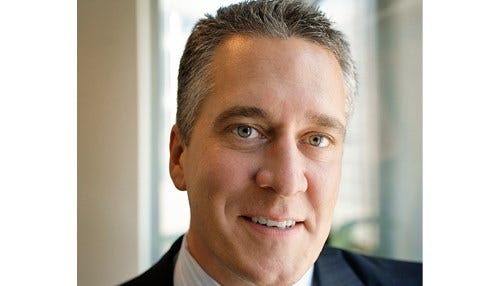It’s Decided: Leaders Need More Love

Subscriber Benefit
As a subscriber you can listen to articles at work, in the car, or while you work out. Subscribe NowMaking big decisions is hard. Sometimes it’s paralyzing. Leaders are expected to make the right call, but that can be a tall order in times of crisis. And lately, most everything feels like a crisis.
These are times where so much of what we value – as a nation, as states and as citizens – feels like it’s up for grabs. We desperately need servant leaders who can thoughtfully sift through all the messiness and choose the best path. But, most Americans are frustrated by the decision making of those in charge.
We elect members of Congress to make good policy decisions, yet Gallup says 75 percent of us disapprove of the job they’re doing. We depend on CEOs to do the right thing, yet Pew says only 45 percent of us are confident that business leaders are working in the public’s best interest.
Leaders across Indiana are often targets of our frustration, too. State lawmakers are feeling the heat right now as they debate whether to pass a comprehensive hate crimes bill that most Hoosiers – and Gov. Holcomb – say they want. Forty-five other states have already decided to pass such legislation, but members of the Indiana General Assembly are decidedly undecided.
In times of conflict, making tough choices can be a challenge for everyone from policymakers and CEOs to voters and middle managers. Fortunately, several leaders have already shown us the path to making good decisions. They’re known as servant leaders and their process boils down to three steps.
Choose Empathy
Whenever you’re having difficulty determining the best path forward, try putting yourself in someone else’s shoes. Step away from partisan news outlets, listen to divergent perspectives and allow yourself time to thoughtfully consider and weigh the feelings, attitudes and experiences of others.
Naysayers of this approach might suggest it’s a sign of weakness and say our best leaders needn’t employ empathy. But two of America’s greatest men – President Lincoln and abolitionist leader Frederick Douglass – empathetically engaged each other to move past a rocky start and change the course of our nation for the better.
When you have touch choices to make, be curious about the authentic motivations of others and work to understand the life experiences that inform their points of view. At a time when civil discourse is in short supply, it can only help.
Be Open to Evolving
Our past experiences and beliefs can be a valuable resource when evaluating thorny issues and exploring how to view things in a current context. But, they can also hold us back if we close ourselves off to the possibility of evolving our views even when new information suggests we should do something different than we’ve always done.
Take our debates on climate science. Decades ago, Rachel Carson penned a book called Silent Spring that opened our eyes to how the actions of companies were adversely affecting our environment. Critics worked tirelessly to discredit her back then and efforts just like it dog climate scientists to this day. But Americans have evolved and a majority now believe environmental change is real and that humans play role in it.
When balancing long-held beliefs against current decision making, try gathering all the facts you can and then work to evaluate the information you have without bias. You might come to the same decision you’ve reached before. Just be open to the possibility of evolving.
Set Your Ego Aside
A good friend of mine – who served our nation admirably as a colonel in the U.S. Air Force – likes to say that ego is the enemy of leadership, and leadership is all about making tough decisions. He’s told me about far too many cases of smart, well-meaning leaders – in both the public and private sector – who were derailed by their own self-importance.
To avoid allowing your ego to force you into making bad decisions out of fear or pride or even revenge, stop and think if humility could play a valuable role in the process. Invite others in to help challenge your perspectives and inform your actions.
And don’t worry about humility being a display of weakness. As C.S. Lewis once wrote, “humility is not thinking less of yourself, but thinking of yourself less.”
The people you lead today are counting on you to make the right call. With a little empathy, humility and an openness to evolving, you’ll have the tools needed to make complex decision-making look easy.
Mike Marker is senior partner with VOX Global.
